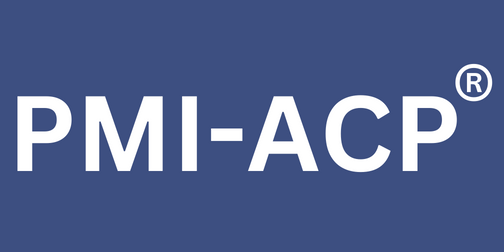
The Future of Project Management
Posted On June 26, 2024 - 16:18 PM
Project management has always been a dynamic field, constantly evolving to meet the demands of changing technologies, methodologies, and business environments. As we move further into 2024, it's essential to understand the emerging trends and equip ourselves with the right strategies to navigate the future of project management.
Key Trends Shaping the Future of Project Management
1. Increasing Integration of Artificial Intelligence
Artificial Intelligence (AI) is no longer a futuristic concept but a present reality impacting various aspects of project management. The integration of AI in project management tools is one of the most significant trends for 2024. AI-driven tools like Microsoft Copilot are designed to assist with day-to-day tasks, improving efficiency and effectiveness in project planning and execution. These tools provide robust support for inexperienced project managers by leveraging historical project data to reduce errors and facilitate better decision-making.
2. Automation of Low-Value Tasks
Automation is another crucial trend, allowing project managers to focus on strategic tasks rather than mundane, repetitive ones. By automating low-value-add tasks, project managers can dedicate their efforts to activities that significantly impact their projects' success. Automation aids in generating performance insights, supporting decision-making processes, making estimates and predictions, optimizing resource scheduling, and performing risk analysis.
3. Enhanced Communication and Collaboration
Effective communication and collaboration are vital for successful project management. In 2024, there is a growing trend of integrating communication into project plans. This integration ensures that all stakeholders are aligned, and project updates are seamlessly communicated. Daily touchpoint meetings, which go beyond work-related discussions, are becoming popular as they help maintain a healthy work-life balance and foster team cohesion.
4. Greater Focus on Resource Planning
Resource planning is becoming increasingly important as organizations strive for efficient utilization of their human and material resources. The ability to dynamically assign resources to strategically valued projects is essential for achieving organizational goals. Enterprises are recognizing the need for an enterprise-wide resource overview and good skills management to find and train appropriate resources.
5. Shift Towards Strategic PMO Roles
The Project Management Office (PMO) is evolving from a tactical entity to a strategic department. The PMO's role is expanding to include strategic capacity planning and portfolio management. This shift requires the PMO to have direct access to top management and take on responsibility for implementing strategic targets. The concept of "fail cheap" is gaining traction, encouraging organizations to recognize and abort failing projects early to reallocate resources to higher-priority projects.
6. Emphasis on Emotional Intelligence
Emotional intelligence is becoming a critical skill for project managers. Managing human resources effectively requires understanding and connecting with people on a deeper level. As remote working becomes more prevalent, the ability to empathize and maintain team morale is more important than ever. Project managers are increasingly scheduling meetings that serve as social outlets, helping to sustain a healthy work environment.
7. Soft Skills Over Technical Skills
While technical skills remain important, there is a growing emphasis on soft skills such as conflict resolution, stakeholder engagement, negotiation, mentoring, and decision-making. AI-powered solutions are handling many of the technical aspects of project management, freeing managers to focus on leadership and team building. Developing these soft skills is essential for delivering more value to the organization.
8. Alignment of Projects with Organizational Strategy
Project managers are no longer just executors of projects but are now playing a more hands-on role in executing broader organizational strategies. Understanding the relationship between program, portfolio, and project management allows organizations to see how individual projects align with their strategic goals. This alignment is crucial for the successful execution of organizational strategies.
Challenges in the Future of Project Management
Despite these promising trends, several challenges need to be addressed to fully harness the potential of project management in 2024 and beyond.
Data Protection and Privacy
With the increasing use of AI and automation in project management, data protection and privacy have become critical concerns. Ensuring that sensitive project data is secure and compliant with data protection regulations is essential. Organizations must implement robust security measures and stay updated on emerging threats to protect their data and systems.
Skills Gap
As the demand for emotional intelligence and soft skills increases, there is a growing need for training and development programs to equip project managers with these skills. Organizations must invest in continuous learning and development to bridge the skills gap and ensure their project managers are well-prepared for the future.
Cultural Change
The shift towards a more strategic PMO and the emphasis on recognizing and aborting failing projects require a cultural change within organizations. Project managers need to feel supported and not fear failure. This cultural shift is essential for fostering an environment where innovation and strategic thinking can thrive.
Conclusion
The future of project management is bright, with AI, automation, enhanced communication, and strategic alignment playing pivotal roles. As we embrace these trends, it is crucial to address the challenges and equip project managers with the necessary skills and tools to navigate this evolving landscape. By doing so, organizations can ensure they are well-positioned to achieve their strategic goals and drive successful project outcomes.
The journey ahead in project management promises to be exciting, with endless possibilities for innovation and growth. By staying ahead of the trends and adapting to the changing environment, project managers can lead their teams to success and make a significant impact on their organizations.
Check out this blog : Understanding Top-Down and Bottom-Up Management Approaches


















